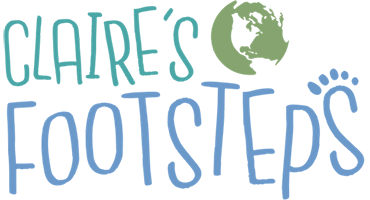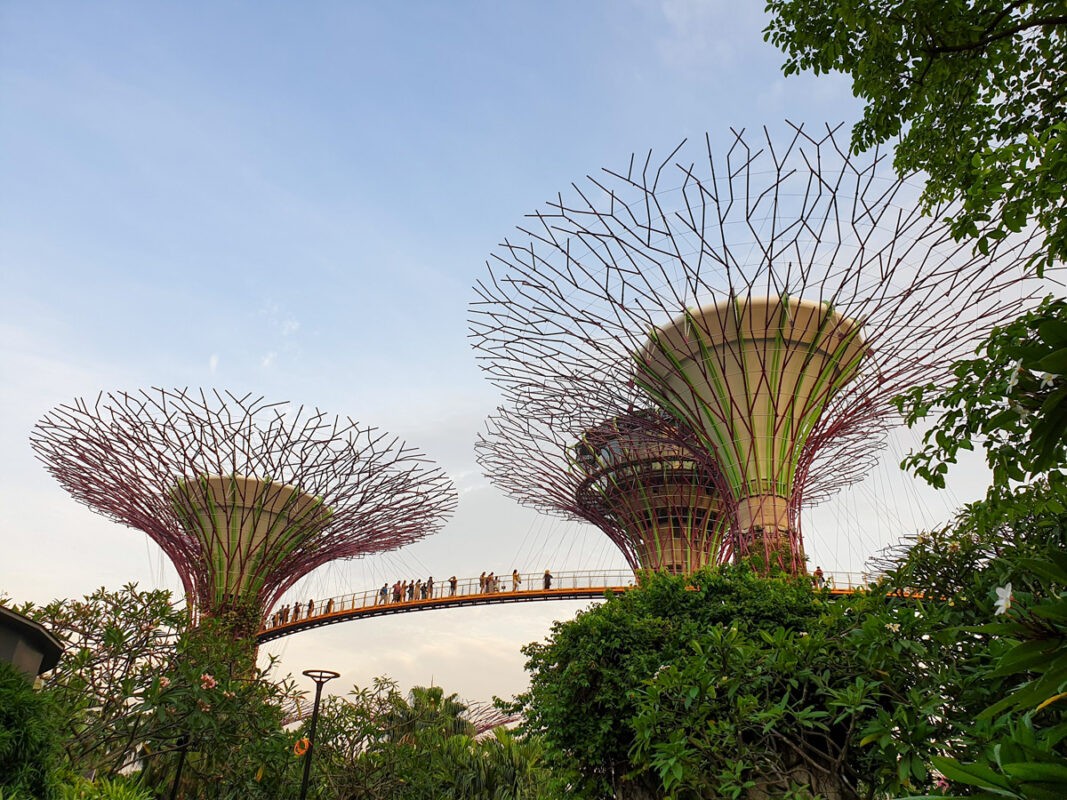Visiting the Lion City and wondering is Singapore safe?
In a word – yes. Probably much safer than your hometown.
However, there are a few things to consider when visiting this South East Asian metropolis.
I’ve been to Singapore three times, and have always felt very safe there – but have picked up a few tips on the way.
So, read on for my full assessment of Singapore safety!
This blog post may contain affiliate links.
Is Singapore safe?
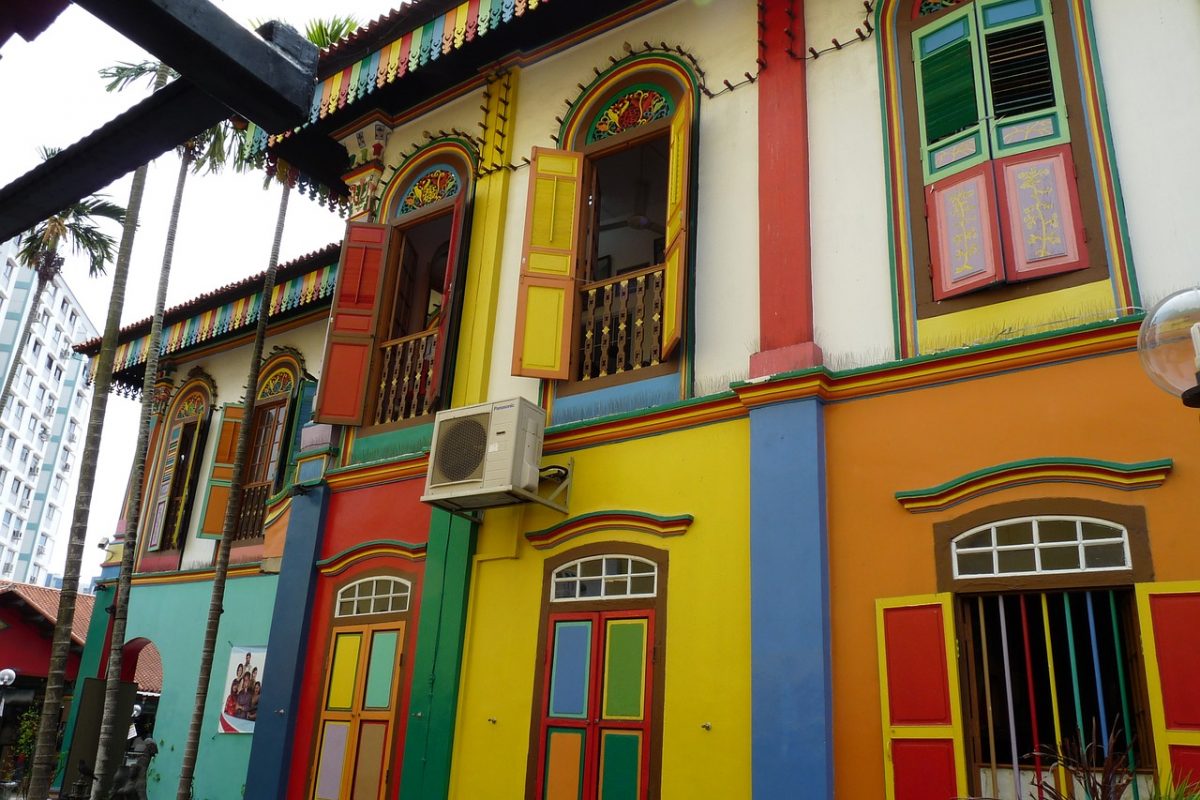
Yes, Singapore is safe – I’m prepared to bet it’s much safer than many cities you’ve visited or lived in.
In the Global Residence Index, it’s currently ranked 7th in terms of safety – ahead of Switzerland, Iceland and Japan.
It has a very low crime rate (for both petty crimes, like pickpocketing, and more serious crimes).
The biggest thing to be mindful of when travelling here is not accidentally breaking any Singaporean laws, which are quite strict!
There are also a few scams, but these are more of a hassle than a danger.
Is Singapore safe for solo female travellers?

I’ve visited Singapore as a solo female traveller twice and have felt completely safe, 100% of the time.
I didn’t experience any catcalling or unwanted attention from men on the street; everyone who I had a conversation with was respectful, friendly and polite.
Of course, I took common precautions but there was nothing about the country that made me feel unsafe as a solo female traveler.
Crime in Singapore
Part of the reason why Singapore is considered so safe is that both non-violent and violent crime is incredibly rare.
Petty theft can happen, but even that is uncommon when compared to large Western cities like London, Paris or Barcelona – just use your common sense and you should be able to avoid this.
In 2021, Singapore was rated the third safest city in the world due to its low crime rate – so if you’ve been to any other major city, you should feel comfortable enough exploring Singapore without being fearful of the crime risk!
Is there a risk of political unrest in Singapore?
Singapore has one of the most stable parliaments in the region, and it’s hard to imagine political protests here – in fact, protests have to gain permission from the police to go forward!
This has its issues, as seen from the recent rejection of a rally in support of Gaza, but it’s hard to imagine any significant political unrest in the country.
Is there a risk of terrorist attacks in Singapore?
There’s a risk of terror attacks anywhere, but it’s low in Singapore.
There have been attacks in the past (mainly in the 60s and 70s, when the country was going through a more turbulent time pre and post-independence).
In recent years, a couple of plots have been foiled; including a 2021 planned attack on a Synagogue and a 2020 planned attack on a mosque. There haven’t been any non-foiled attacks in the last 20 years.
The fact that these plots have been foiled should show some confidence in the Singaporean anti-terrorism department; while there is a risk, it’s minimal, and to me, the stats seem much more reassuring than they are for most of Europe.
Safety on public transportation and in Singapore taxis
Public transport in Singapore is efficient, clean and super safe!
I’ve taken the subway all over the city and found it not only really easy to use but also very efficient at getting me to my destination. It’s also fantastic if you want to save money in Singapore!
If you want to take a taxi (be mindful that they are pricier here than elsewhere), this is also a very safe option.
However, I usually opt for Grab (which is like Uber but popular in South East Asia), mainly for convenience, but also I think that they’re a little cheaper. They’re also very safe, with your journey being tracked through the app.
Scams in Singapore
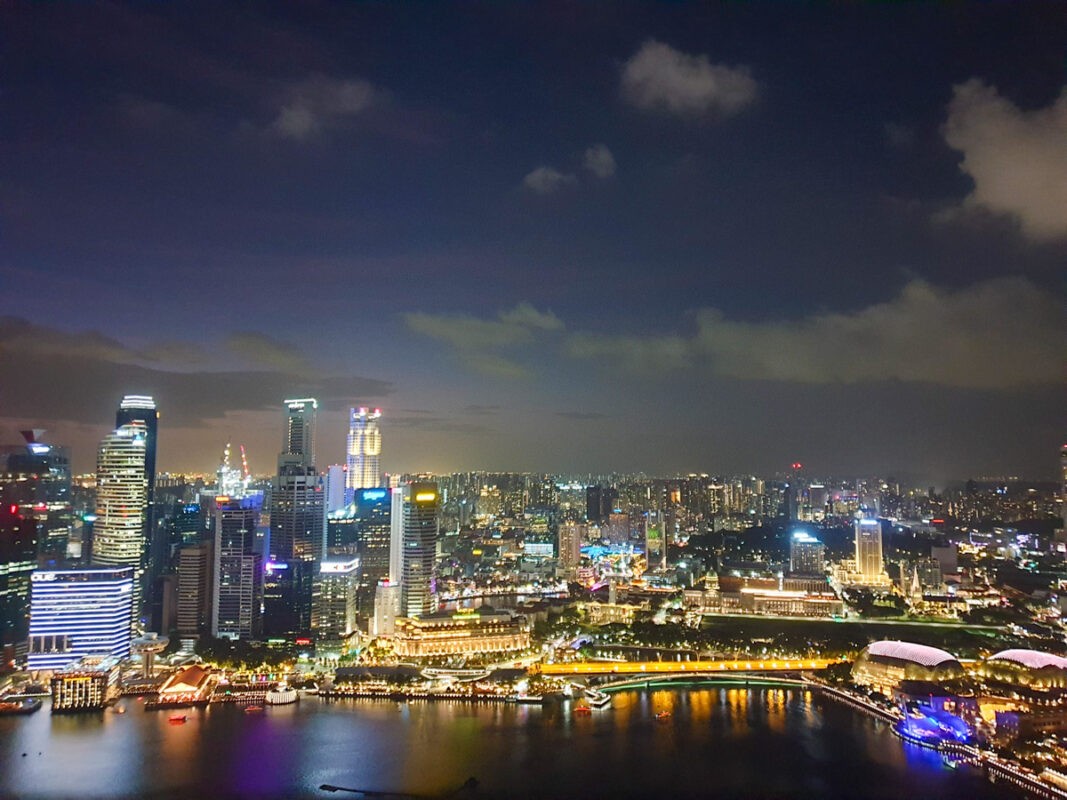
Like any big city, there are a few scams to watch out for in Singapore!
I was a victim of one of these myself on one of my trips there.
A man started talking to me as I was sitting outside, enjoying a coffee.
He seemed nice enough so I continued speaking to him until he revealed halfway through the conversation that he was a psychic.
At the time, I was going through some stuff, and he told me a few quite believable things that I could relate to (although looking back, I was probably eager to learn that things were looking up).
At this point, he asked for 5 SGD to tell me some more information – I gave it to him, as I was a bit hooked by this point (silly, looking back on it, but at least it wasn’t very much money!).
However, he then asked for another 10 SGD, and at this point, I realised that this would just keep going on and on, so I said that that was enough.
He promised to reveal some shocking information if I gave him some more money, but I did walk off at this point – I guess I’ll never know what he was going to tell me!
I told my Singaporean friends about this and they were quite surprised, so I don’t think this is that common (they may approach tourists more than locals), but do be mindful if you’re visiting Singapore – many people did start speaking to me when I was out, and all apart from this guy were just being friendly, but do hold your ground!
Taxi scams – where you’re charged a much higher rate than you should be – can happen in Singapore, but these are uncommon compared to other countries.
If you’re really worried about scams, you could look at Singapore tour packages that include all your accommodation, activities and transport.
Healthcare in Singapore
Singapore has excellent healthcare – but it comes at a cost!
If you’re ill in Singapore, you’ll certainly be able to see a doctor, but you’ll want comprehensive travel insurance to avoid it costing you a considerable amount of money.
I always use and can recommend Safetywing, who provide affordable and flexible policies. Check them out here!
LGBTQ+ travellers in Singapore
I can’t speak too much for the safety of the LGBTQ+ community as a straight woman. But, the facts are:
- Singapore decriminalized sex between two men in 2023 (sex between two women was never criminalized).
- This was actually a law that the British put in in colonial times.
- While the law change was celebrated by many, others pointed out that at the same time, the state made it harder for gay marriage to ever be legalised.
- Generally, from sources I’ve read, some attitudes in Singapore can still be conservative, but the younger generation is much more inclusive and open, and there are plenty of LGBTQ+-friendly areas throughout the city.
But, if you’re visiting Singapore as a gay couple, I’d recommend reading gay travel blogs like this one to get a first-hand perspective of what it’s like.
Laws to be aware of in Singapore
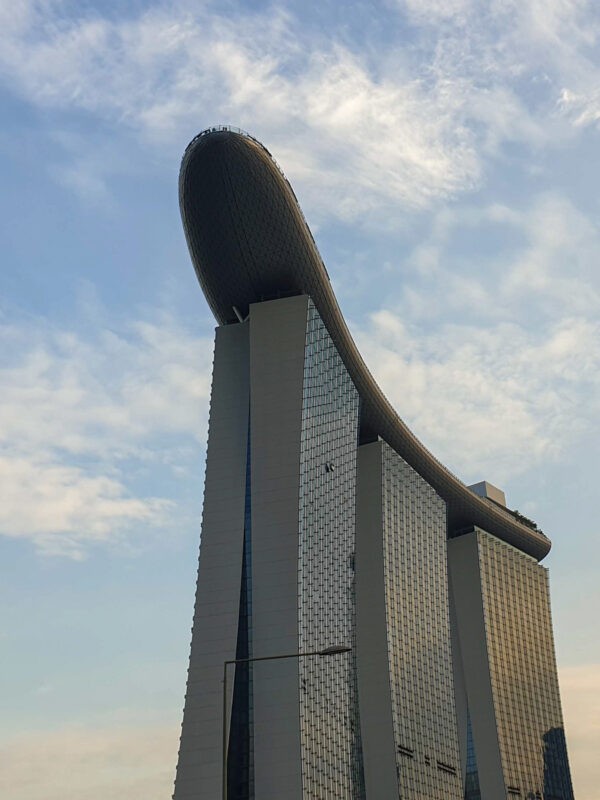
As I mentioned before, probably the biggest danger in Singapore is being unaware of local laws (and that’s only because there’s very little danger elsewhere!) – that said, these are typically over-dramatised in the media, and I’ve never had an issue with these in the three times I’ve been to the island nation.
There’s a whole host of bizarre laws in Singapore, but here are some of the ones to be most mindful of:
1) Chewing gum
Chewing gum is illegal in Singapore – and if you’re caught with it, you could be fined S$500+ for first-time offenders – so it’s best to leave it at home!
2) Littering
Littering is also illegal in Singapore, with fines from S$1,000 – so make sure that you use designated bins when disposing of your rubbish.
3) Jaywalking
In Singapore, you must cross at designated crossings – which, to be fair, does keep the traffic pretty safe and easy to manage!
4) Smoking
Smoking is banned in public parks, beaches and on Orchard Road, as well as in many private properties. If you’re a smoker, triple-check any if areas are ok for smoking to avoid fines. You have to be 21 or over to purchase cigarettes and tobacco in Singapore.
5) Drunkeness
Alcohol is readily available in Singapore (although it’s certainly expensive!).
However, there are quite strict laws surrounding alcohol consumption and drunkenness. You can be fined if you’re too drunk to be able to look after yourself, and there are restrictions on drinking in public, with it being outlawed in some areas.
Basically, if you fancy a tipple stick to licensed bars and don’t have one too many!
6) Recreational drugs
Recreational drugs are highly illegal in Singapore – which is something to be especially mindful of if you’re coming from a country where they are legal.
Possessing drugs in any quantity can lead to severe punishment, and trafficking is punishable by the death penalty.
Cultural considerations for Singapore
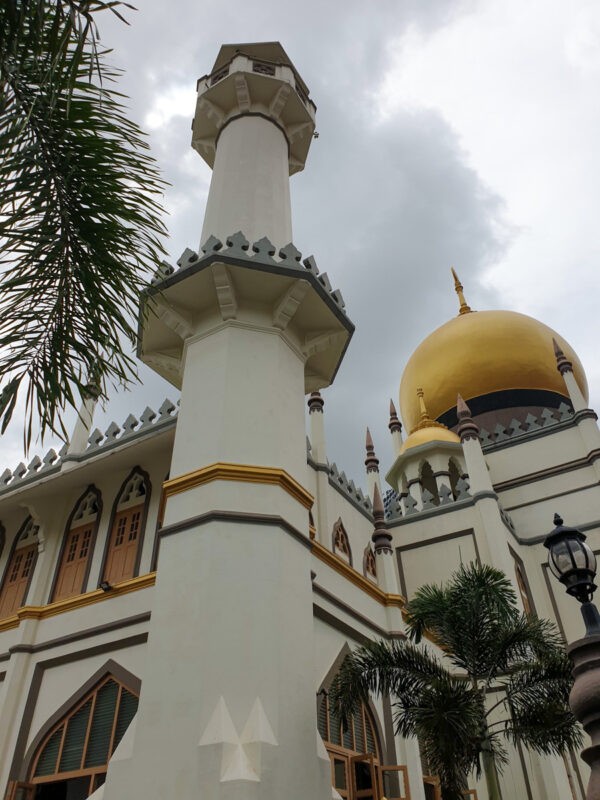
Singapore is very proud of being a multicultural city with three main cultural groups (Malay, Chinese and Indian) and four main religions (Islam, Hinduism, Chinese Buddhism and Christianity) living alongside one another.
If you’re visiting Singapore from Europe or North America, you shouldn’t have as much of a culture shock as you may in other destinations in Asia, like China or Vietnam.
English is the main language (although there’s quite a lot of slang and many locals speak another tongue as their first language) and in many ways, it’s a fusion between Western and Eastern cultures.
However, do be mindful of all cultures while you’re there.
There’s no strict dress code, but I tended to not wear anything too revealing while walking around the city (i.e. no short shorts or super low-cut tops). In mosques and temples, you’ll need to cover up more (robes and headscarves are sometimes, but not always, provided).
Be mindful if you’re visiting Singapore during the holy month of Ramadan.
In some areas, like Little India and Chinatown, the month won’t be observed much and you’ll be able to find open restaurants.
However, you’ll notice fasting and cultural practices observed more in places like Kampong Glam (the main Muslim area of the city centre). I’d always recommend avoiding eating in front of someone who may be fasting out of respect.
Dangerous areas in Singapore
While the city centre of Singapore is one of the safest places in the world, there are a few neighbourhoods which are considered less so.
These include Jurong West, Yishun North, Nanyang and Geylang, where crime rates are slightly higher.
However, that said, I still wouldn’t class any of these as an unsafe area in the grand scheme of things – the crime rate is still lower here than in many places in the United States. Plus, these are all out of the tourist areas.
It’s unlikely that you’ll find yourself in these areas, but if you do, just avoid walking around at night, which is when most of the problems occur.
If you’re looking for a safe place to stay in Singapore, Kampong Glam, Chinatown or Marina Bay are all very secure.
Why is Singapore the safest country in Asia?
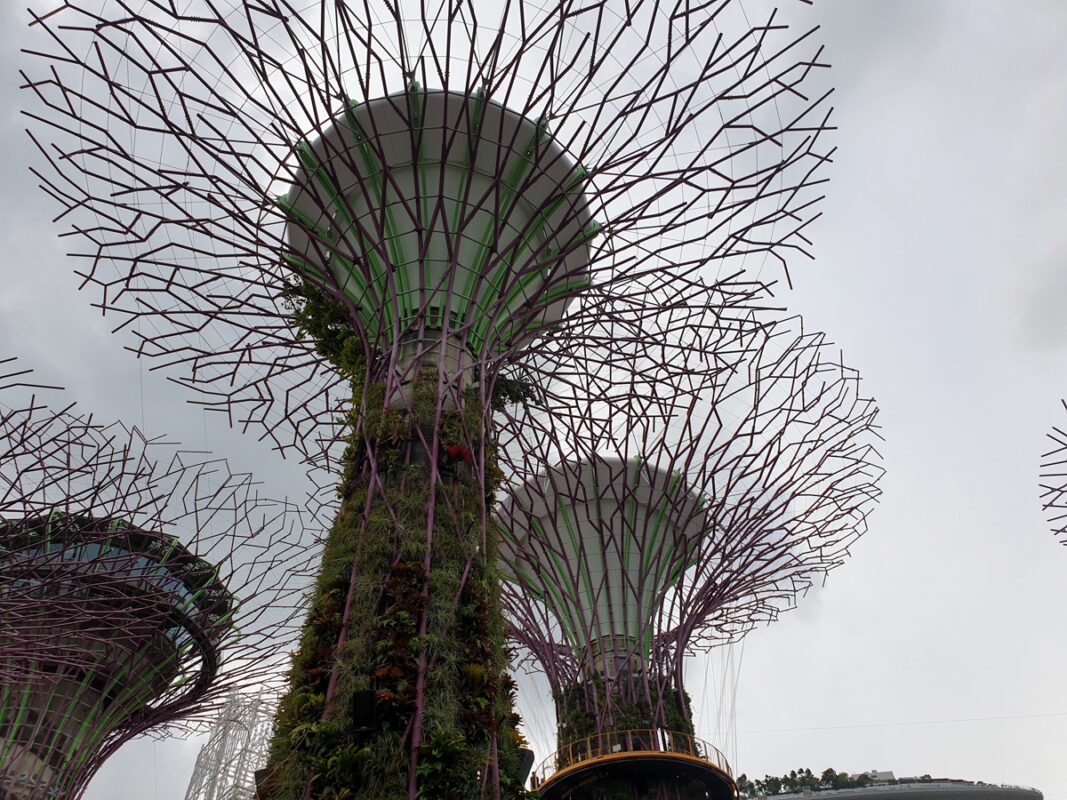
Singapore is often regarded as the safest country in Asia due to its robust law enforcement, strict legal system and comprehensive public safety policies.
The presence of a highly efficient and visible police force acts as a strong deterrent against crime. Singapore’s legal framework is strict, with harsh penalties for crimes, contributing significantly to low crime rates.
Additionally, the country’s advanced surveillance and security technologies play a crucial role in maintaining safety.
Singapore is known for its extensive network of CCTV cameras and sophisticated security systems, which help in monitoring public spaces and quickly addressing potential security threats.
The culture of social responsibility and community engagement in Singapore also contributes to its safety.
The government and various community organizations often run public awareness campaigns, encouraging residents to be vigilant and cooperative in maintaining public order and safety.
Moreover, Singapore’s compact urban planning and high population density ensure that most areas are well-lit and continuously active, reducing the likelihood of crime.
The city-state’s emphasis on education and social welfare also minimizes socio-economic disparities, which can be a factor in crime and unrest in other regions.
Food hygiene in Singapore
Food hygiene is generally excellent in Singapore, with even the Hawker Centres (street food markets) offering high-quality dining.
In fact, some of Singapore’s Hawker Centres are Michelin-star rated, the food is that good!
I wouldn’t have any reservations about dining anywhere in Singapore.
Tap water in Singapore
Part of the reason why I wouldn’t worry about dining anywhere in Singapore is.. the tap water is drinkable!
Tap water is pumped from reservoirs to treatment centres where it’s made drinkable.
This makes Singapore one of only six countries in Asia where tap water is considered safe for drinking; the only other in South East Asia is Brunei.
Staying safe in Singapore’s heat
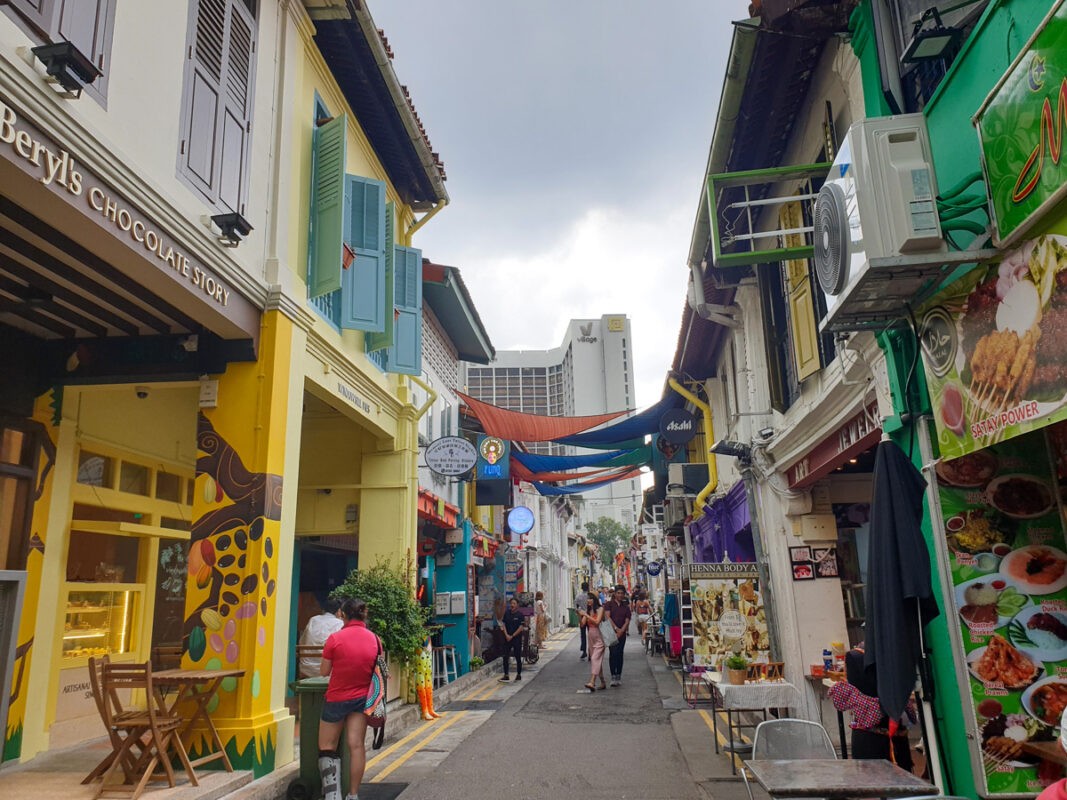
One of the biggest dangers in Singapore? High heat and humidity!
Placed just above the equator, Singapore is warm 12 months of the year, with high humidity. The rainiest time is December to early March but it can rain other times of the year too.
If you’re not used to hot weather, do take it easy when exploring Singapore and schedule frequent indoor (air-conditioned) stops.
Make sure you drink at least two litres of water a day and apply sun cream to any exposed areas – even if it’s cloudy.
Tropical diseases in Singapore
While Singapore is a very sanitized, healthy place, there are some (very limited) tropical diseases to watch out for here.
Dengue is the biggest concern. It’s not rampant by any means, but there have been cases in Singapore in the last few years. There’s no commonly-available vaccine or tablets for dengue fever and it can be serious.
The best way to prevent dengue fever is to wear plenty of bug spray with DEET and cover your arms and legs – especially in the evening and early morning.
Malaria isn’t an issue in Singapore; it was declared malaria-free in the 1980s, and there are a handful of cases reported per year (probably from people who’ve travelled to other countries).
Likewise, Singapore isn’t a Yellow Fever zone, although if you’ve been to a Yellow Fever-risk country recently you may need to show a certificate of vaccination upon arrival.
Being up to date with your tetanus shots is sometimes recommended (as it is in Europe and the USA), but vaccinations like Hepatitis A and B are only recommended for people with pre-existing health concerns.
That said, if you’re travelling elsewhere in southeast Asia or are at all concerned, speak to your doctor.
Natural disasters in Singapore
While other countries in South East Asia are at risk for natural disasters like earthquakes, Singapore’s location means that it’s relatively safe from these.
The earthquake risk is low and as it faces Sumatra on the Singapore Strait, it isn’t somewhere where a large tsunami would hit. Plus, it usually doesn’t see hugely dramatic storms or cyclones.
That said, Singapore imports over 90% of its food, so when natural disasters happen in nearby countries it can feel the brunt of them in this way.
Tips for staying safe in Singapore
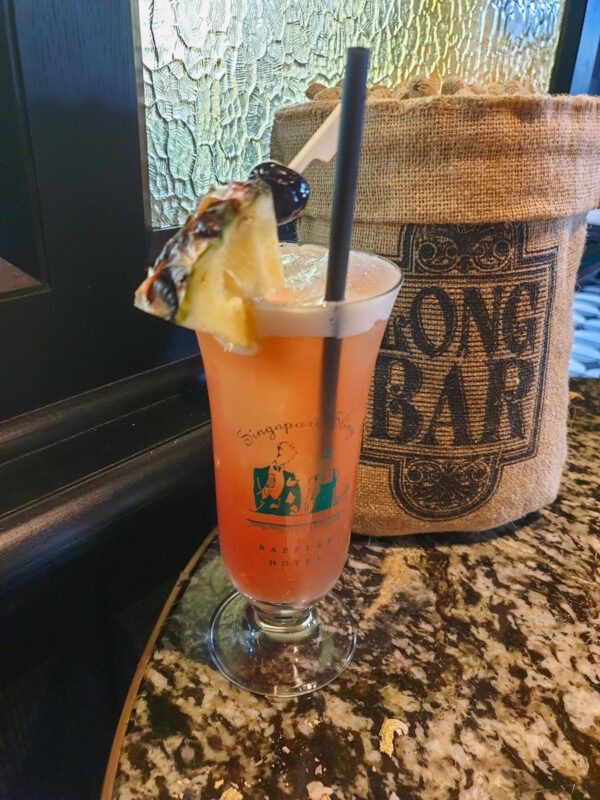
Hopefully, through reading this article you’ve realised that Singapore is safer than many cities in Europe and the USA.
Here are some of the main tips that I took to stay safe when I was in the country.
1) As a solo female traveller, I didn’t go out late at night on my own
The first time I went to Singapore, I stayed in a hostel and went for a meal and a couple of drinks with other travellers.
However, I made sure I didn’t drink too much (both for my pocket and for my safety!) and as I went home earlier than everyone else, I took a taxi back to the hostel rather than walking. It probably would have been perfectly safe to walk, but I felt a little bit safer in a taxi.
When I visited Singapore the second time, I was on my own again and I stayed in a quiet capsule hostel in Chinatown, so didn’t meet any other fellow travellers. I made sure I was back at the hotel by 10:30/ 11pm every night (which is when I wanted to go to bed anyway!) so I didn’t have to walk around on my own.
2) I secured all valuables
Petty crime is rare in Singapore but does happen. I’m used to this from growing up in London (where it’s much more common!) so used the same precautions.
I kept all valuables in a zipped cross-body bag, stayed out of very crowded areas and locked any valuables I wasn’t using in lockers or a safe at my accommodation.
3) I used the Grab app for safe journeys
Taxi drivers in Singapore are excellent, and hailing a cab on the street is safe. However, I always like to use an app as it tracks the journey. In South East Asia, I always use Grab and have found it to work very well.
4) I had a few credit cards on me
One of my top tips for solo travel? Make sure you have ample credit cards on you! I use Monzo abroad (if you’re UK-based, sign up here for a free fiver!) but also have cards from other bank accounts that I can use if necessary.
5) I read up on laws
As mentioned, Singapore has a strict enforcement of laws, so before visiting I read up on these (and made sure that I didn’t have any rogue chewing gums lying around!).
Are you ready to visit Singapore?
As you can see, Singapore is a very safe place, with tasty food, plenty to do and a strong emphasis on helping tourists have the most hassle-free time in the country.
There are some strict rules for certain crimes, but getting caught out with these can be avoided by reading up on them before going and buying health insurance to cover any costs in emergencies.
Other than that, Singapore is an exceptionally safe city, with some of the lowest crime rates in the world!
